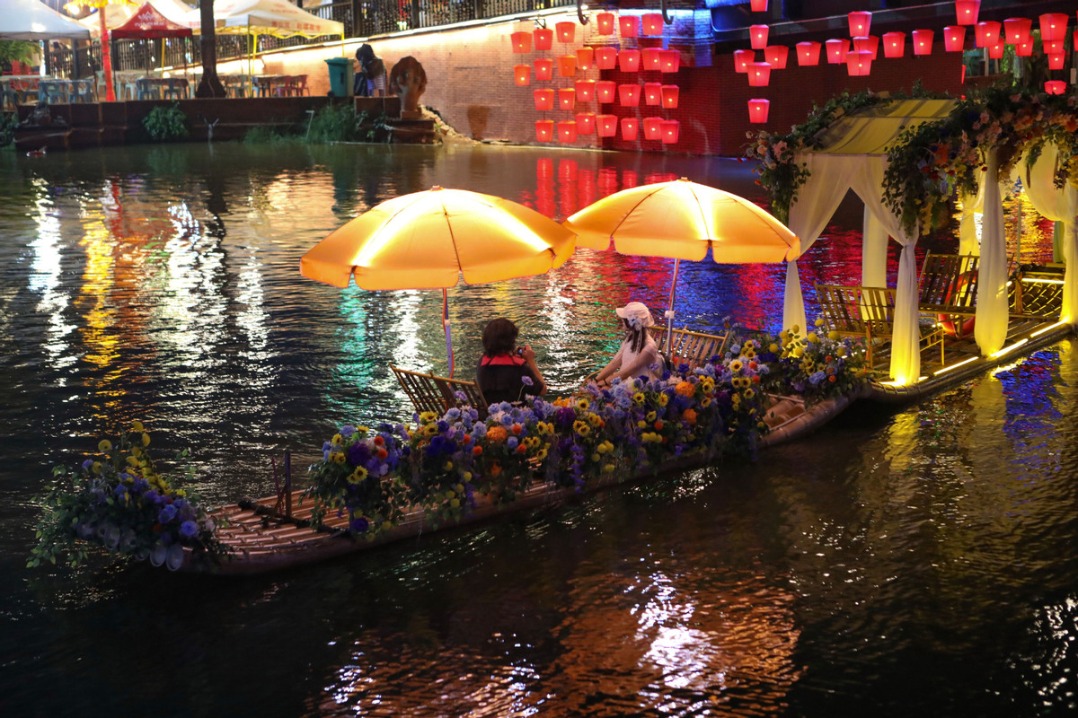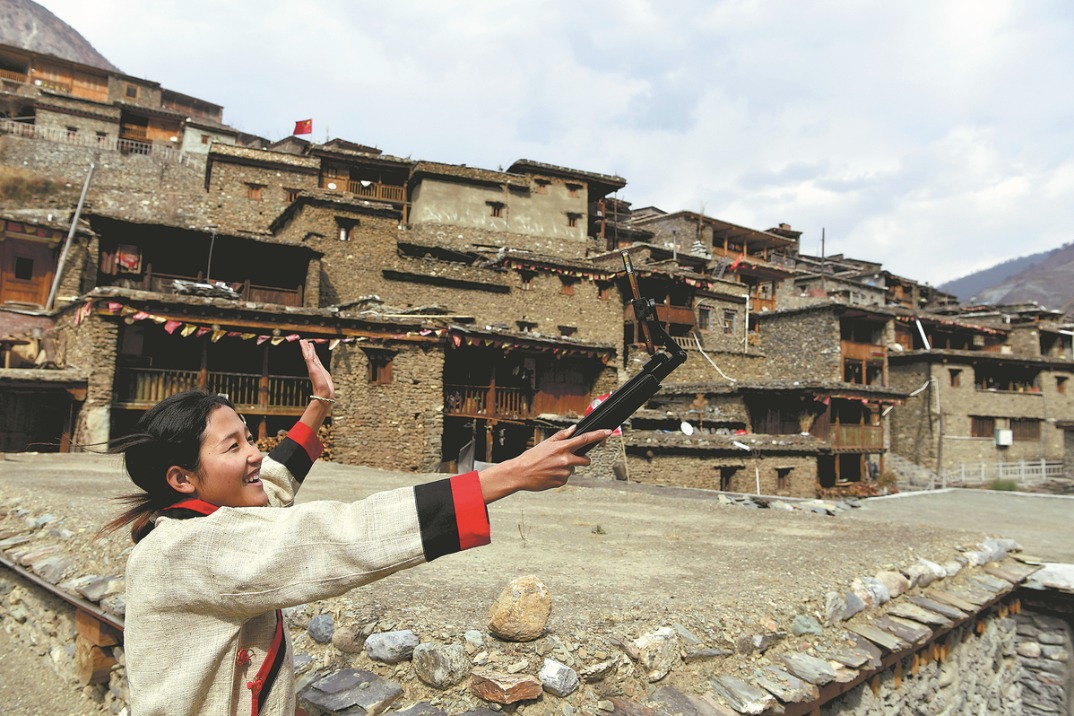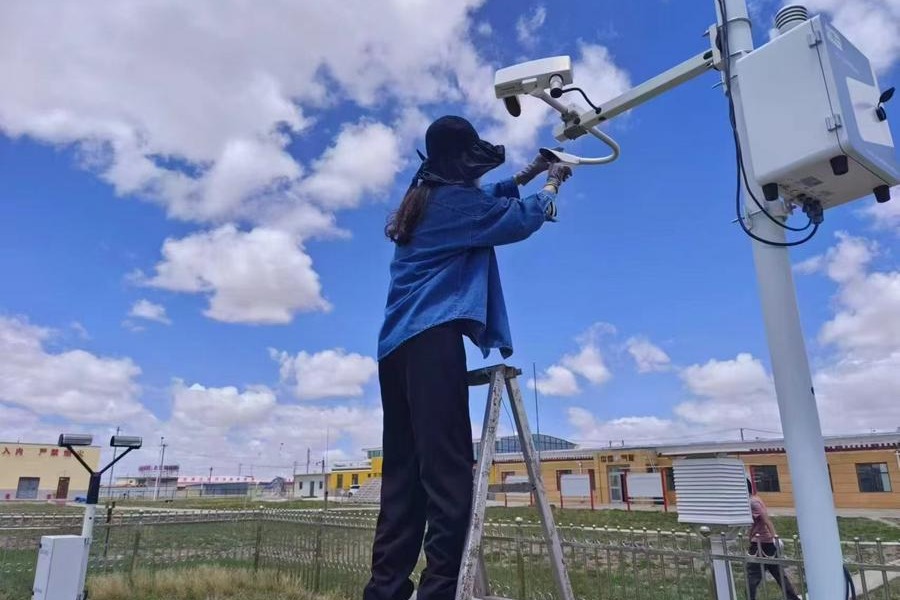Don't pollute with light

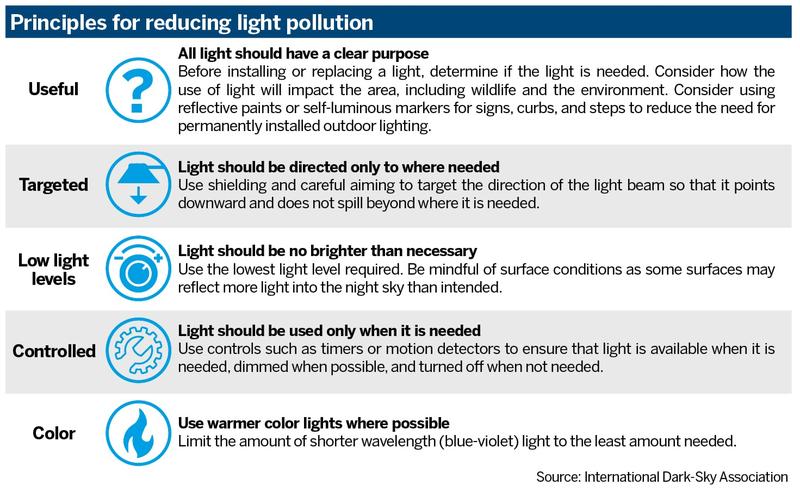
Lack of legislation
Despite the expected benefits, Dark Sky conservation zone projects face many challenges and limitations. Liu noted that such projects often involve a long gestation period, continuous financial support, and considerable coordination with vested interests.
Under IDA certification, a Dark Sky zone needs to continuously audit its lighting usage over 10 consecutive years.
So far, most regions have no specific legislation on light pollution control, creating difficulties in formulating regulations and penalties for non-compliance.
Taiwan's Hehuan Park has no legally binding convention. It exhorts residents and visitors to exercise due care on light control in the area.
Exodus Sit Chun-long, an international committee member of the International Dark-Sky Association, cautioned that there can be a conflict between boosting tourism and protecting the ecology. The Dark Sky zone's impact on city light pollution is also limited, as most such pollution is in downtown areas, and calls to reduce it are zealously obstructed by business owners.
Sit advised regions seeking IDA certification to have clear objectives and to coordinate with other stakeholders in environmental protection, astronomic observation, eco-tourism, public health, etc., for a comprehensive Dark Sky purpose, consensus, and agenda.
Much-needed standards
Pun stressed the importance of setting integrated criteria on light pollution grading. He noted that so far there are only brightness metrics but no multi-factor and unified classification, integrating the degree of pollution, health, and other impacts. That handicaps policy formulation.
Noting the challenge of creating nationwide laws on the issue, Liang encourages cities to leverage local government legislation to regulate light pollution. He encouraged planners to include nightscape lighting within the overall design of buildings, and tailor different urban area lighting needs for flexible control specifications.
Liu urges raising public awareness on the issue to be prioritized. Light pollution, compared with air or water pollution, is a relatively new alarm which the public is not yet sensitized to. "If the faucet is not turned off, we know that we are wasting water. If the light is unnecessarily scattered to the sky or elsewhere, few people realize that is also a kind of waste."
Outdoor lighting is a symbol of progress and prosperity, to showcase. Yet, in the more enlightened consciousness of sustainable development, dimming lights appropriately is in our collective interest, said Liu.
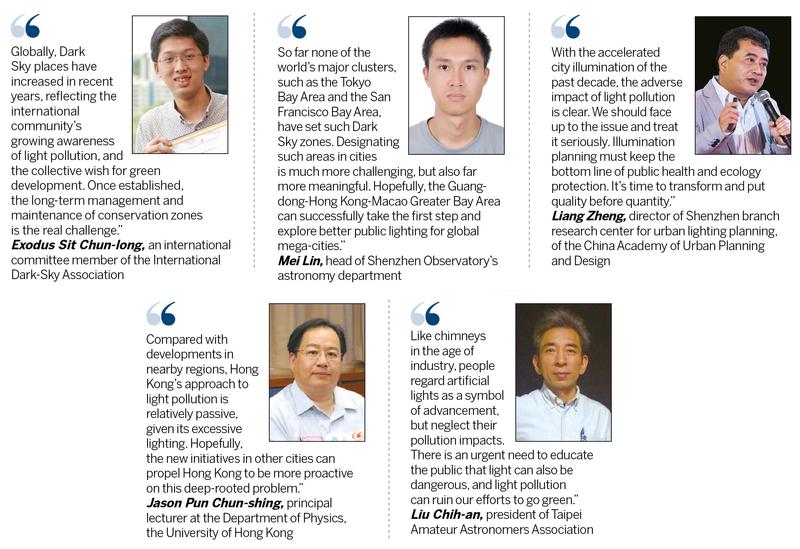
WHAT'S NEXT
? Formulate authoritative, unified standards for light pollution.
? Fund more research into light pollution's effects on human health.
? Set more pilot zones to enforce laws on light pollution.
? Include outdoor lighting in the overall design plans of cities.
? Strengthen public education on light pollution and ecological impacts.
















